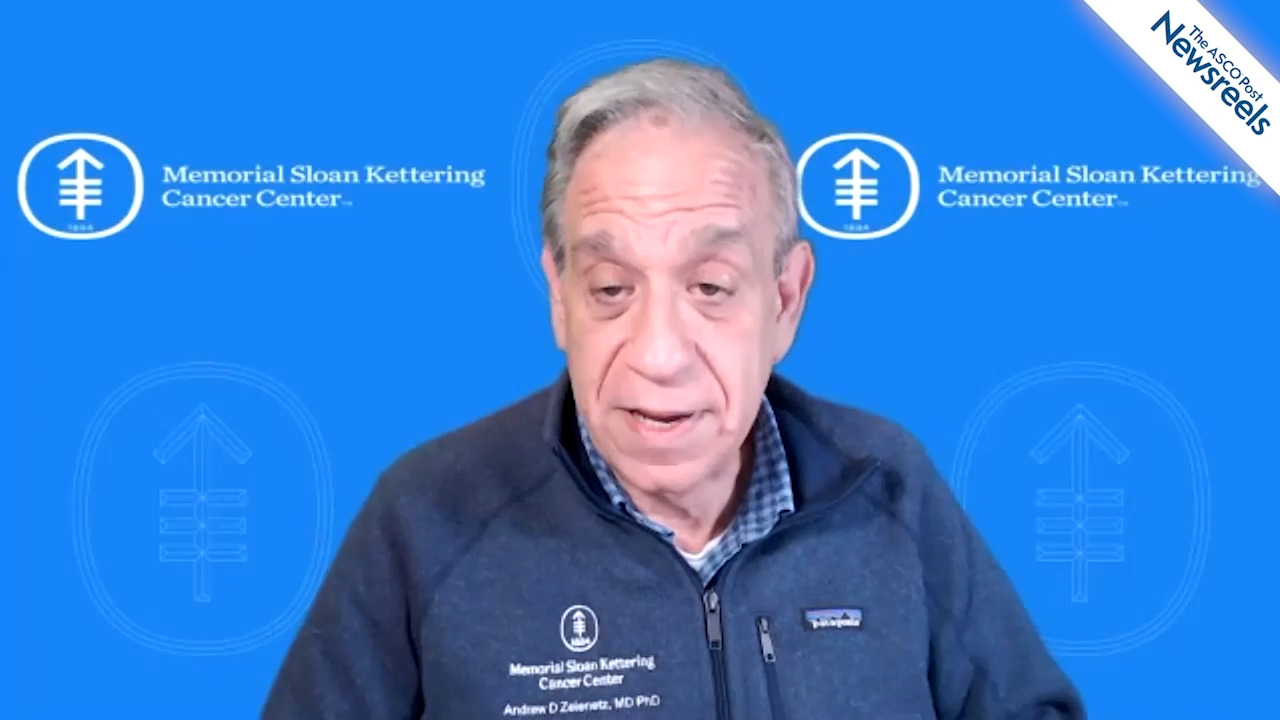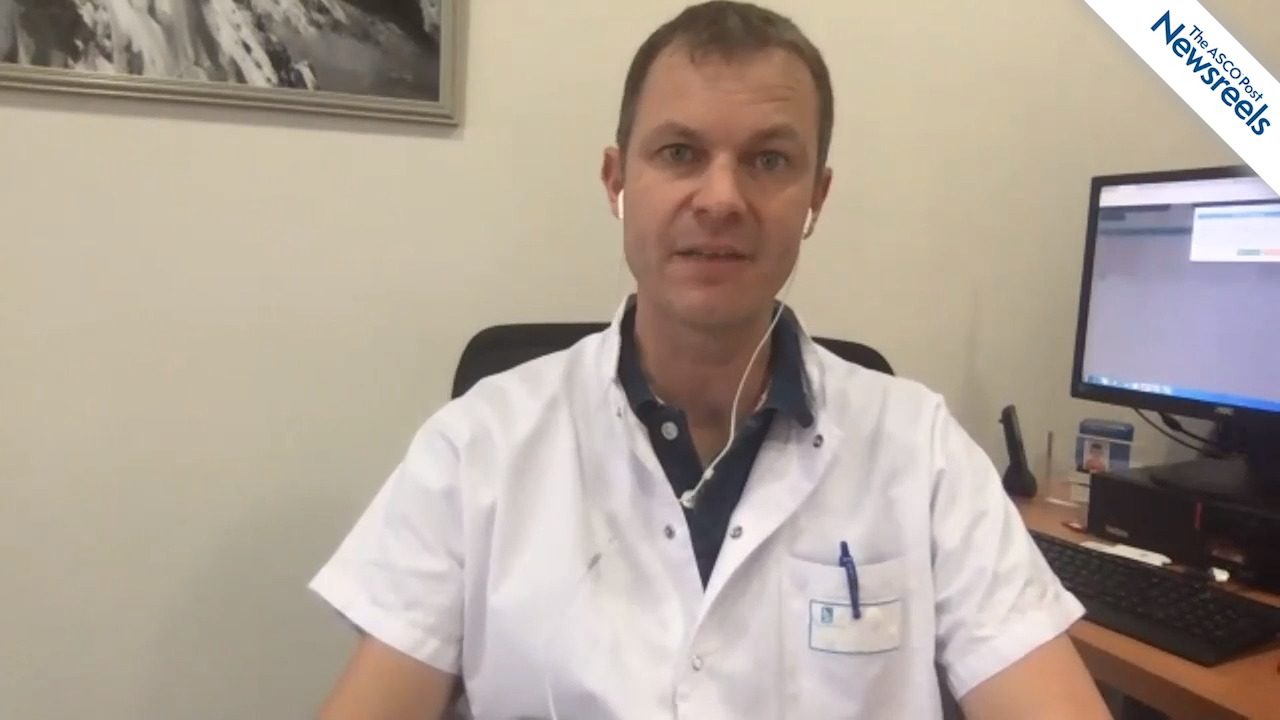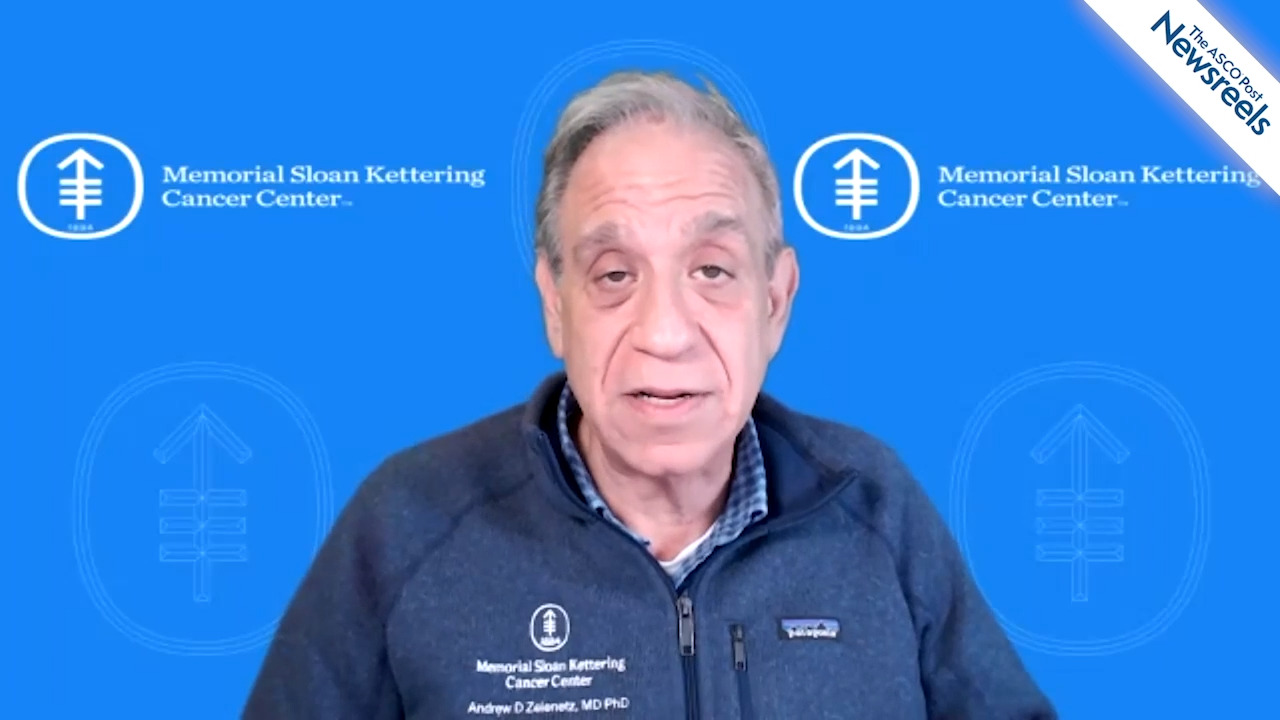Jyoti Nangalia, MBBChir, on MPN: A New Paradigm for the Development of Blood Cancer?
2020 ASH Annual Meeting & Exposition
Jyoti Nangalia, MBBChir, of Wellcome Sanger Institute and the University of Cambridge, discusses how her team used large-scale whole-genome sequencing to precisely time the origins of a blood cancer and measure how it grew. The information could provide opportunities for early diagnosis and intervention (Abstract LBA-1).
The ASCO Post Staff
Andrew D. Zelenetz, MD, PhD, of Memorial Sloan Kettering Cancer Center, offers his expert views on five treatment studies in mantle cell lymphoma focusing on the next-generation BTK inhibitor LOXO-305; lisocabtagene maraleucel; minimal residual disease monitoring following autologous stem cell transplantation with or without rituximab maintenance; the antibody-drug conjugate VLS-101; and venetoclax, lenalidomide, and rituximab (Abstracts 117, 118, 120, 121, 122).
The ASCO Post Staff
Sagar Lonial, MD, of the Emory University School of Medicine, summarizes key papers presented in a session he co-moderated on how second-generation CAR T cells can be used to treat patients with multiple myeloma (Session 653).
The ASCO Post Staff
Emmanuel Bachy, MD, PhD, of the Hospices Civils de Lyon, discusses the final analysis of a phase III study of adding romidepsin to chemotherapy in patients with previously untreated peripheral T-cell lymphoma. Adding romidepsin did not improve progression-free survival and was associated with high rates of adverse events (Abstract 39).
The ASCO Post Staff
Andrew D. Zelenetz, MD, PhD, of Memorial Sloan Kettering Cancer Center, discusses phase II results from a single-center study that explored a novel approach for high-risk patients with mantle cell lymphoma. Among patients with TP53 wild-type disease, the data suggested this treatment was effective (Abstract 119).
The ASCO Post Staff
Tycel J. Phillips, MD, of the University of Michigan Rogel Cancer Center, discusses phase II data from the CITADEL-204 study, showing that patients with relapsed or refractory marginal zone lymphoma who were not previously treated with a Bruton’s tyrosine kinase inhibitor achieved rapid and durable responses with single-agent parsaclisib. Comparable results were also observed in patients with nodal, extranodal, or splenic disease (Abstract 338).





